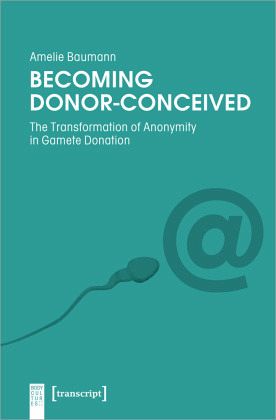Nicht lieferbar

Becoming Donor-Conceived
The Transformation of Anonymity in Gamete Donation
Versandkostenfrei!
Nicht lieferbar
While it has been argued that anonymity in gamete donation has been brought to an end by legal changes and technological developments, Amelie Baumann suggests that this is in fact still in transformation. By focusing on the narratives of those who were conceived with anonymously donated gametes in the UK and Germany, she examines this transformative process and the role which donor-conceived persons play in it. This book shows that it is not someone's decision to procreate that turns »being donor-conceived« into a meaningful categorisation. Rather, kinship knowledge gets activated by the don...
While it has been argued that anonymity in gamete donation has been brought to an end by legal changes and technological developments, Amelie Baumann suggests that this is in fact still in transformation. By focusing on the narratives of those who were conceived with anonymously donated gametes in the UK and Germany, she examines this transformative process and the role which donor-conceived persons play in it. This book shows that it is not someone's decision to procreate that turns »being donor-conceived« into a meaningful categorisation. Rather, kinship knowledge gets activated by the donor-conceived in specific ways for »being donor-conceived« to become a powerful identification.




